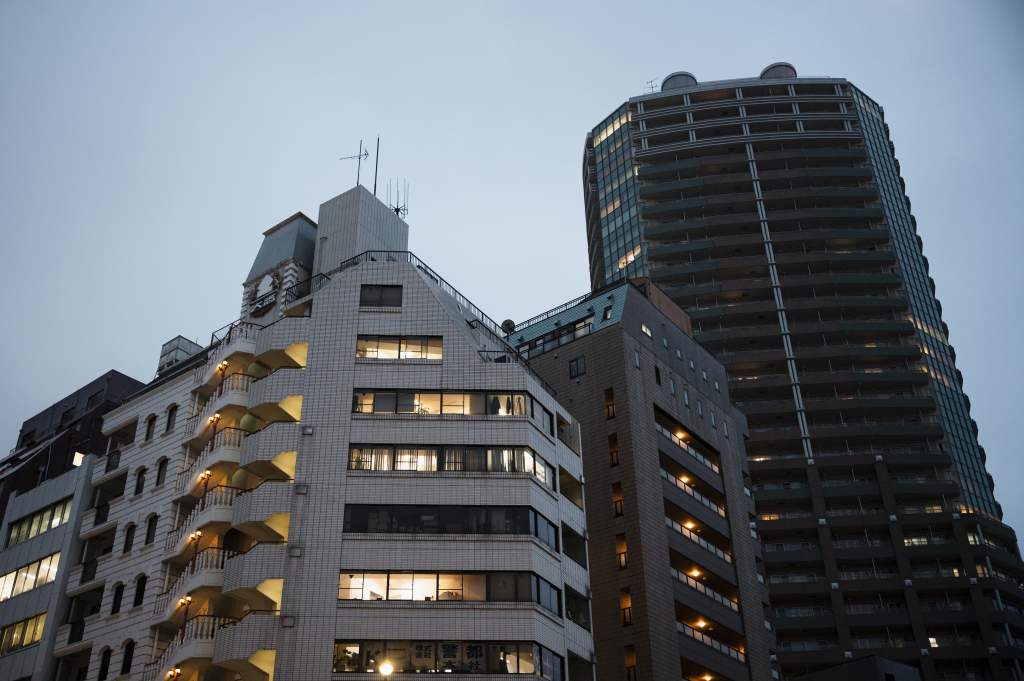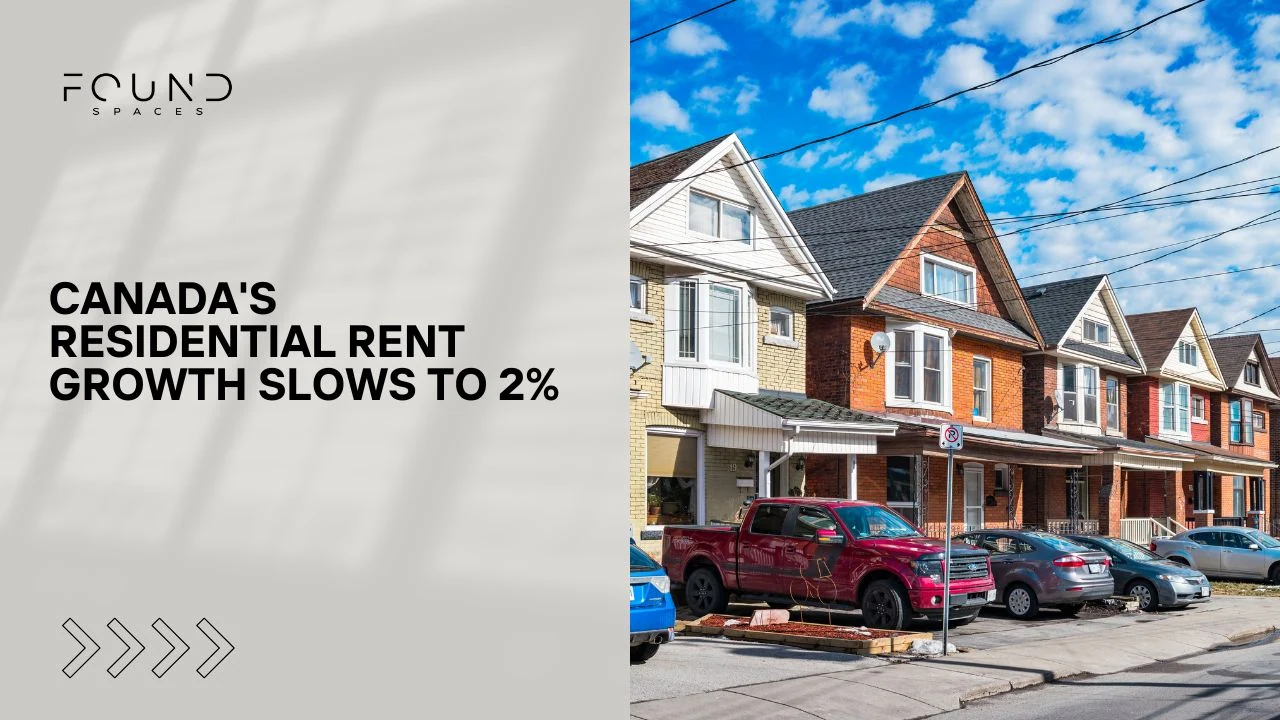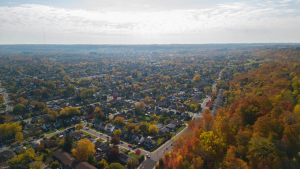The demand for residential houses in Toronto, Canada, has increased in the last few months. According to a recent National Rent Report and Urbanation, the average asking price for rental in the city has increased significantly by 2.10% per annum in September. This means the monthly rental price in Toronto is currently at $2,193. Since May’s 9.0% growth in monthly rental costs, Toronto has experienced a slow annual growth rate in rental asking prices.
However, despite the slow growth, Canada’s residential rent prices remain 25.20% higher for the last three years and 13.40% higher in the previous two years. This clearly shows that the COVID-19 pandemic left a sizable impact on the real estate market. This slowdown in rental prices is in line with the low turnout of non-permanent residents who visit Canada.
Decline in Student Population Affecting Canada’s Residential Rent Prices

The number of students visiting Canada for further studies has significantly dropped by half from the record high for the last couple of years, affecting the rents. The reduction in student enrollment has been impacted in places like Ontario and B.C. The rental asking price in Toronto has been increasing slowly for the last three years.
At the same time, the small real estate markets in the country continue to experience increasing demand for rentals. The demand for rentals is shifting steadily to less expensive cities.
There has been a sharp decline in rents by 1.7% for condominium apartments in the country. The rents averaged $2,296 in September. This trend is also evident in other markets that are witnessing a decline in rents. Some of the markets include Toronto (-7.70% to $2,745), Calgary (-3.40% to $2,060), and Vancouver ( -13.6% to $3,232).
Studio units saw a steady increase in the rent price at 11.10%, while purpose-built apartments in the country witnessed a 5.40% increase in rent, hitting the $2,138 mark.
Decline in Condominium Asking Prices

Additionally, the most significant decline in rents in the country has so far been recorded by B.C. and Ontario. In Ontario, the mean asking price for condominium and purpose-built houses has declined by 4.30% to a minimum of $2,380.
British Colombia has also experienced a 3.20% decline in the rental asking price for these apartments, reaching a low of $2,570. On the other hand, Saskatchewan is now the fastest-growing province in the country, as rents surge here by 23.5%.
Rents for apartments have declined significantly in most of the major cities in the country, such as Calgary, Vancouver, Montreal, and Toronto. For instance, in Vancouver, rental prices have declined are now 9.50% year-over-year, hitting an average of $3,023.
Also, Toronto has witnessed an 8.10% decline in rents, now at $2,668. Both Montreal and Calgary have posted an annual rent decline of 2.00%. Ottawa is one of the cities experiencing a slight increase in rents of 0.80% to $2,220.
Lloydminster is Still the Most Affordable Rental Market
Lloydminster, one of the most affordable rental markets in the country, led with an annual rental growth of 27.5%, still maintaining it as the most affordable city to live in. The average apartment rent in this city is $1,178. Quebec City (+24.005%) and Saskatoon (+24.80%) are other places experiencing significant rent growth.
Another significant deviation is accommodation rents, which have grown by 6.90% annually. The mean rent for accommodation is now at $1,009 in September, and the demand for more affordable accommodation options in major cities like Vancouver and Toronto is rising.
Rent Prices in Coquitlam Remain Resilient
Despite a fall in rent prices in most parts of the country, Coquitlam’s rent prices have remained resilient. For instance, the rent prices for a two-bedroom unit are now down in places like Metro Vancouver, but not in Coquitlam, where the unfinished two-bedroom units now back the trend. There is a surge in new condominiums in Coquitlam, a rental hotspot in the country.
Additionally, there is a downward trend in rental prices in Metro Vancouver. The cost of a one-bedroom unfinished unit has gone down year-over-year for three consecutive months.
For instance, the current year’s September price is $68 cheaper compared to the same time in September 2023. This trend shows an anticipated fall in rental prices in the country. This is possible after the Bank of Canada announced it will lower interest rates, as another rate decrease is expected.
Prices in Langley are on Lows and Highs
Langley is another place in Canada experiencing a significant shift in rent prices in September. One-bedroom furnished unit prices have declined month-over-month at -7.59%. Meanwhile, unfurnished one-bedroom units post an increase in price of +1.86% month-over-months.
A square foot price stands at $3.66 in Langley, making it one of the most expensive areas to rent in Metro Vancouver. Notably, Langley remains the most affordable market for furnished one-bedroom units.
Shared Accommodation Now Popular

The asking rent price grew by 6.90% across four provinces to an average of $1,009 in September. The price grew the most in Alberta, hitting 5.60% to a mean of $905 over the past year.
Meanwhile, the average rent for shared accommodation in the country remains high in British Columbia at $1,210 and Ontario at $1,102. Places experiencing a sharp decline in rents for shared accommodation include Toronto at -5.70% and Vancouver at -6.5%. Edmond has recorded the fastest shared accommodation rent at 8.80%,
Key Points
- The year-over-year growth in rental prices has declined for five months in a row, down from 9.0% recorded in May.
- The rent price in the country remains 13.40% higher in the last two years and 25.20% higher in the last three years.
- Purpose-built apartments saw a 5.4% increase in rent prices while the rent for condominiums declined by 1.70% per annum.
- The most significant rental declines have been witnessed in British Colombia and Ontario.
- Small and more affordable rental markets in Canada continue to experience pressure as demand for housing units keeps shifting to less expensive places.
Final Thoughts
The rent asking prices in most major cities have been experiencing slow growth in Canada for the last three years. This is brought by many factors including changes in rental demand, decline in student population, change in interest rates, economic conditions, and the balance between demand and supply in the housing market.
It’s a noteworthy moment, but not necessarily a signal that Canada’s housing affordability crisis is over. Meanwhile, we should expect the average asking price for rental property to keep declining in the next few months.




